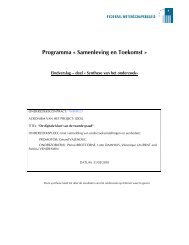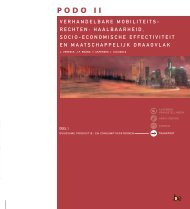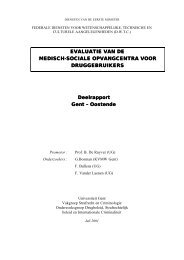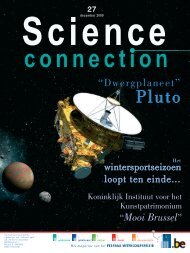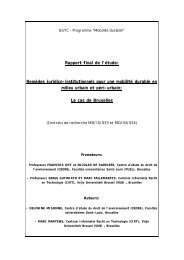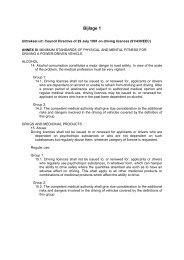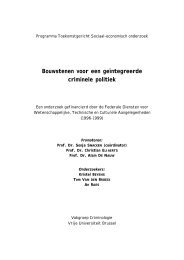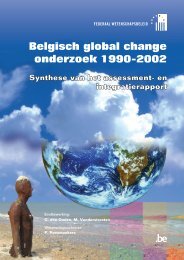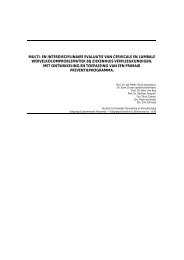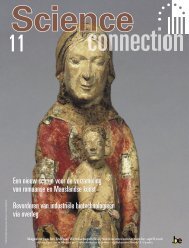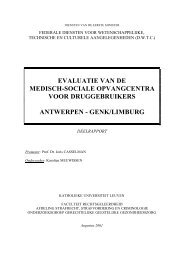chapter 3 inventory of local food systems
chapter 3 inventory of local food systems
chapter 3 inventory of local food systems
You also want an ePaper? Increase the reach of your titles
YUMPU automatically turns print PDFs into web optimized ePapers that Google loves.
Project CP/59 - “Instruments and institutions to develop <strong>local</strong> <strong>food</strong> <strong>systems</strong>”<br />
competences are not developed, case A is bound to stay relative inactive. A meaningful<br />
moment in the intervention <strong>of</strong> case A was at the end <strong>of</strong> the workshop when all members<br />
took their diaries to fix dates for all the actions that were identified during the workshop.<br />
Proposition 2: To be succesful, an LFS needs cognitive competences to support the<br />
ability to reflect upon its actions, to learn and to develop new ideas<br />
The ability to learn from experience is essential for adapting actions and generating new<br />
ideas, and thus for further development. In addition, entrepreneurship entails being able<br />
to spot market opportunities. Case C, the associative economy shop, seems particularly<br />
able in reflection and learning. The shop organises reflection days with its consumers<br />
and sympathizers on a yearly basis. Also case B has a yearly reflection day during which<br />
they <strong>of</strong>ten invite an outsider for support. However, the strong influence <strong>of</strong> an ideological<br />
framework may well hinder higher order learning as information not concurrent with the<br />
framework may be rejected. Higher order learning is the ability to question and change<br />
one’s own mental models <strong>of</strong> the real world. Due to case A’s and C’s strong beliefs in the<br />
principles <strong>of</strong> bio-dynamic agriculture and anthroposophism, they may reject innovative<br />
ideas or discard some mental models as being irrelevant. Case B, however, seems less<br />
prone to reflection and more pragmatic, but there seems to be more openness for<br />
change and innovation and a more entrepreneurial spirit.<br />
Proposition 3: To be succesful, an LFS needs relational competences to support the<br />
ability to share<br />
Relational competences refer to the necessity to act and learn jointly. They aim at<br />
producing trust and shared meaning. It is essential as a basis for sustained joint action.<br />
This is more difficult to achieve between different organisations than within a single<br />
organisation. Entrepreneurial competences will fail if not supported by trust and shared<br />
vision. The members <strong>of</strong> case A seem very skilled in the art <strong>of</strong> dialogue. Despite this, our<br />
intervention showed that the members are not fully aware <strong>of</strong> each others complete<br />
visions. The intervention in case B was the first time a true dialogue among the members<br />
was held, that is, when there was full openness on the individual aspirations, but also<br />
assumptions. All members were surprised to find more common ground than expected.<br />
The intervention also created the necessary tension in order to go forward.<br />
As a result, when one <strong>of</strong> these competences is lacking or ill-developed, LFS tend to<br />
stagnate in their development or to be highly dependent on external input. The latter is<br />
not sustainable as <strong>of</strong>ten depending on the possibility to receive government subsidies.<br />
Case A and B are stagnating in their development either due to a lack <strong>of</strong> managerial<br />
competences (case A) or relational competences (case B). Case C is a special case in the<br />
sense that ideology plays a dominant role with experimentation being more important<br />
than upscaling.<br />
From a theoretical point <strong>of</strong> view, these propositions are closely connected to the<br />
literature on inter-firm collaborations. This is a subfield within the fields <strong>of</strong> management<br />
and organization studies. However, most <strong>of</strong> this literature takes a static view <strong>of</strong> strategic<br />
alliances between firms (Davis, 2005). Scholars studying the dynamics <strong>of</strong> collaborations<br />
focus on the formation, evolution and dissolution <strong>of</strong> alliances. In their seminal<br />
SPSD II - Part I - Sustainable production and consumption patterns - Agro-Food 66



